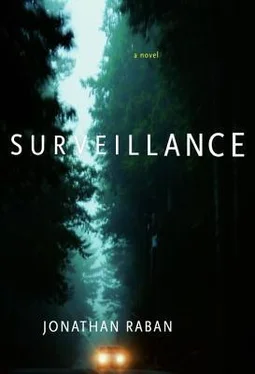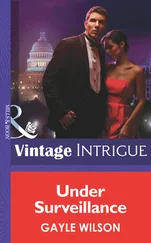“Alida?”
Her own name reached her as a slow-spiraling echo bouncing off the walls of a long tunnel, and it took a little while to connect the voice with Mrs. Milliband, who was looking down at her with the professionally tolerant smile of someone trained to deal with the severely handicapped.
“Uh…Mercator?” Alida said, and waited for the class to break out in mocking laughter at her dopiness.
“Right, Mercator. Now who can tell us what Mercator’s ‘Greenland problem’ is?”
Alida’s hand went up. In class, her hand often seemed to be out of her control, like an unruly puppy who couldn’t grasp the meaning of “Sit!” or “Stay!” She watched from a distance as it waved urgently at Mrs. Milliband. Everyone knew that on Mercator’s projection, Greenland came out far too big and Africa far too small.
“Let’s hear from one of the boys. How about…Finn?”
“Well,” Finn said, as if that were the last word as well the first that he had to say on the subject, then smooshed his face into an expression of agonized concentration. “If you peel an orange, it comes out like distorted.” Two boys sitting at his table tittered, but in a friendly way: surly, geeky Finn was popular with boys. “Well,” he said again. “The way Mercator did it, Greenland got all skewed. But Robinson came along and fixed it.”
A fly buzzed against the dusty pane of the tall window through which the sun streamed. The air smelled cooked and stale; the class, fidgety in the heat, heavy with lunch, limped through Mrs. Milliband’s lesson. Alida tried to concentrate, obediently imagining a lightbulb inside a colored glass globe, projecting the surface of the earth onto paper cylinders and cones, but with her mind adrift, she was soon elsewhere, thinking of algebra again.
She and Gail were best friends. But x + y = z was only one in a set of troubling simultaneous equations. Her mom hated Gail’s mom. She never said so directly, of course, but Alida could tell, from her frozen smiles and too-bright, tinkly voice whenever she dropped Alida off at Gail’s house and the two mothers spoke. So — z = a + b. It had started — Alida was sure of it — near the end of last semester, shortly before Mr. Quigley, the girls’ Language Arts and homeroom teacher, who was incredibly funny and nice, left the school. Mysteriously, Mr. Quigley was another variable in the problem. So was the fact that Gail’s family went to church a lot — they were Baptists or something. This much Alida had gleaned from observing her mom, but the puzzle was missing a bunch of essential data. Subtle questioning of Gail had added nothing new, and the one time Alida had tried to question her mom she’d met evasion and denial.
Elimination. Substitution. Intersection. As Alida watched the fly — a tiny frenzy of beating wings as it flung itself again and again at the glass — it appeared to grow, until she could almost see its bulbous red eyes and bearded, spongy mouth, like the monster flies in Microcosmos that had figured in her nightmares when she was a little kid. Memoryless, incapable of learning from experience, it would thrash against the window till it died.
Alida was engrossed in the fly’s stupid struggles when Mrs. Milliband’s voice broke through to her: “Azimuthal,” she said, and wrote the word up in squeaky yellow letters on the chalkboard.
Azimuthal. Alida loved ten-dollar words, and was glad to add this one to her collection, where it nestled beside such recent treasures as “egregious” and “collateral.” Even as she took in Mrs. Milliband’s official definition, which involved a flat card held against the surface of a globe, she was busy in another part of her head, making sentences. All through the long hot azimuthal afternoon. … All through the egregious azimuthal afternoon…
“SO HOW DID you guys meet?”
The Vanagses’ kitchen-dining area was a cool refuge from the heat outside. The posy of wildflowers in the vase on the table — poppy, iris, buttercup, dogrose — looked fresh-picked from the roadside that morning.
“In the bank.” Minna was putting the finishing touches to a risotto on the countertop range.
“She was the prettiest teller in the line,” Augie said — he was definitely Augie now — as he extracted a half-empty bottle of white wine from the fridge.
“I opened an account for him. He had his first check from the college and wanted me to give him bills for it. I had to explain banking to him. He knew a lot of history, but he didn’t know nothing about banking, poor boy. He was such an innocent.”
Or good at pick-up lines, Lucy thought. It was easy to imagine the un-innocent refugee-scholar playing the scene, and the girl clerk smitten by his artful mask of helplessness.
“I was still a greenhorn then.”
“He came nearly all the way across the country on a Greyhound bus. From Ann Arbor in Michigan.”
“Yep, rode the dog. Took five days before the interstates.”
Lucy, still puzzled by Minna’s accent, said, “But Minna, where are you from, originally?”
“West Seattle. I graduated from West Seattle High.”
But she said “vest” for “west.” Somehow, in the strange barter-economy of marriage, Minna had picked up her husband’s old accent, while he now spoke in the voice that must have once belonged to her. But since they’d come indoors, Lucy had begun to notice a distinct foreignness in Augie’s speech; not an accent so much as an academic, overprecise articulation, as if his English had been learned — rather too perfectly — from lessons on tape. In “rode the dawg” or “priddiest teller in the lahn,” Lucy caught a slight, actorish false note in the down-homey pronunciations.
“Join me?” Augie waved the chardonnay bottle. “Minna doesn’t like to drink at lunchtime.”
“Makes me go all dizzy,” Minna said.
“Sure.”
But Lucy was disappointed by the meager two fingers’ worth Augie tipped into her glass before putting the cork firmly back into the bottle and returning it to the fridge. A real drink was what she needed — enough to stop the dead couple from paying surprise calls whenever her attention lapsed. Just as she was sitting down at the table, she realized that Minna was saying grace.
“…for each new morning with its light, for rest and shelter of the night,” she recited in schoolroom singsong.
Lucy sneaked a covert glance at Augie, and saw he was sneaking a covert glance at her.
“For health and food, for love and friends, for everything thy goodness sends.”
“Amen,” Augie said, and sent a crooked, collaborative smile in Lucy’s direction.
In the scuffle of chairs, Lucy said, “Looks delicious!” rather too loudly.
“Minna’s an ace cook. Me, best I can do is terrorize the occasional steak.”
Minna passed Lucy the salad bowl. “That’s a wild salad.”
“Yes, isn’t it just!” Lucy said, and laughed, before she saw what Minna meant: dandelion leaves, chickweed, what looked like wilted stinging nettle.
“Minna loves to scavenge.”
“You’ve got to scavenge now, what with the war and all.”
“Sorry?”
“The war…” That vague look again: sometimes Minna was there, and sometimes she seemed to abruptly absent herself from her own face.
Digging into his greens, Augie said, “You rely on supermarkets for your food, you’re going to go hungry any day now. Do you have any idea how incredibly fragile the infrastructure of this country is — how easily it can be paralyzed by the enemy? Suppose in the next attack they hit four cities — Chicago, say, and Boston, and Houston, and Long Beach, all in the same hour. Okay, we close our borders, close our ports, order every plane out of the air: how long d’you think it’d take to clear the shelves of your local Thriftway in Seattle? Two days? Five? But then suppose that twenty-four hours after the first wave of attacks, they come in with truck bombs in Minneapolis, Atlanta, Miami…You better be up early, scavenging for dandelions, because sure as hell ain’t nuthin’ going to be working when that second wave hits.
Читать дальше












